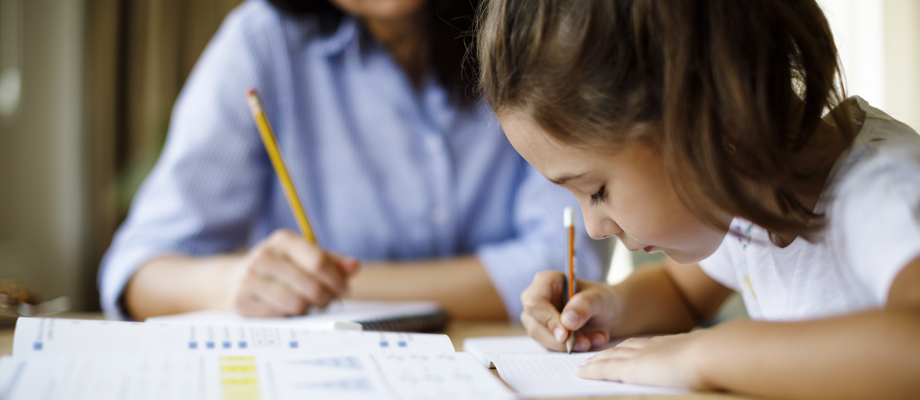
Helping and homeschooling children in the time of the pandemic
March 23rd, 2020
With the unprecedented nationwide closure of schools in response to the current Coronavirus Crisis, hundreds of thousands of children will be forced to learn from home.
Here, Professor Nicola Pitchford and Anthea Gulliford from the School of Psychology highlight some of the things to bear in mind when helping children at home in this challenging time, and offer guidance on some resources that can support children’s learning.
Learning and wellbeing at home
Children of all ages are likely to feel uncertainty or anxiety at some stage, in different ways, through being away from school and through the changes to their social and educational environment.
This guidance from the British Psychological Society aims to offer some support, with a further link to guidance for schools and families from the Society’s Division of Educational and Child Psychology. In particular, a link from that division provides advice on approaches to talking to your child about the Coronavirus.
Schools and educational websites are offering plentiful guidance on curricula and activities (see below). One way to support children’s learning whilst they are at home is through accessing high-quality online educational apps.
Educational apps
Many classrooms in the UK use touch-screen tablets and educational apps to support and engage children in the learning process.
What makes an educational app high-quality?
Our research has identified several features of educational apps that are associated with raising learning outcomes. When choosing educational apps, we recommend looking for apps that:
- follow a well-structured and staged curriculum
- teach basic skills step-by-step without skipping over content
- teach content in different ways through game-like activities
- actively engage children through playful learning
- provide immediate feedback (positive and negative) and motivating rewards
- draw on multisensory processing, enabling children to interact through the visual, auditory and kinaesthetic domains
- allow children to progress at their own pace
- enable children to repeat information as often as they need
- demonstrate ‘how to’ then allow children to ‘practice’ after which they are ‘tested’ on their knowledge
- assess what has been learned before enabling children to progress to high-levels of skill activities
- are scientifically shown to improve learning outcomes.
Links to resources
Here are some links to online resources that can be accessed to support home learning.
Department for Education
- Parental guidance on choosing apps for the home learning environment
- Suggestions for activities suitable for 0-5 years of age
UNESCO
A list of educational apps and platforms to help parents as well as teachers, schools and school systems facilitate children’s learning and provide social caring and interaction during periods of school closure. While these solutions do not carry UNESCO’s explicit endorsement, they tend to have wide reach, a strong user-base and evidence of impact. Most of the solutions are free and several support multiple languages.
Times Education Supplement
Published article by Julien Grenier that provides information on how to support children in EYFS during the COVID-19 school closures. The section on ‘Assisting in home-schooling’ provides some useful links for parents.
Enabling Environments
Our teaching partner at Burton Joyce Primary School – Marc Faulder (Early Years Specialist and Apple Distinguished Educator) has lots of suggestions for how technology can be used to support children’s learning, especially in the early years, during the school closures.
Tags: child care, education, home schooling, learning at home, resources, wellbeing, wellbeing at home
Leave a Reply
Other
Trusted Research update: changes to technologies requiring an export control licence
The UK Government has issued an updated UK Strategic Control List, introducing additional export control measures […]

Adelaide-Nottingham Alliance: join Vice-Chancellors at event celebrating global partnership
Staff, students and researchers are invited to join the Vice-Chancellors of the University of Nottingham and […]

